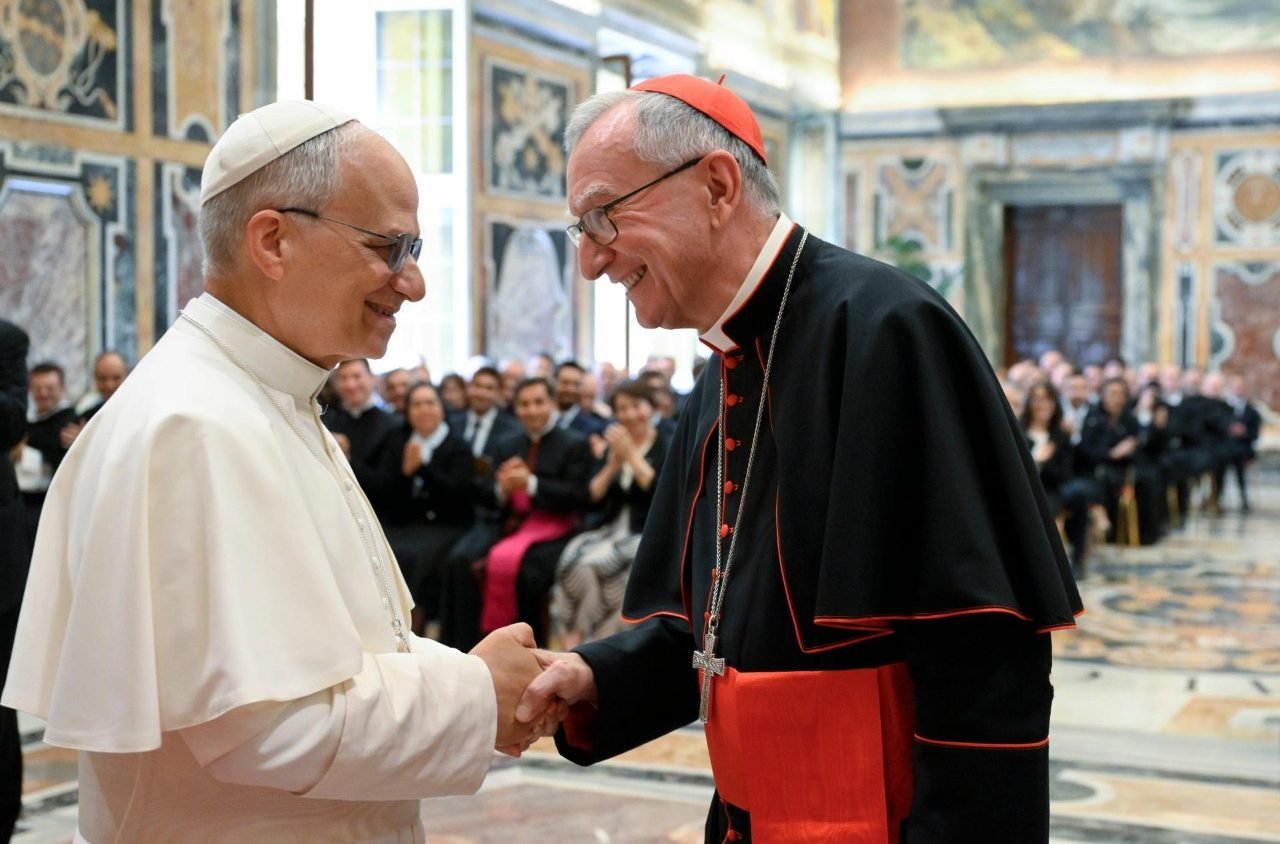
Pope Leo XIV meets with officials of the Vatican Secretariat of State, and invites them to never let ambition or rivalry stand in the way of serving as a community that acts as a hub between the Holy See and the Church around the world.
By Devin Watkins
Curial officials of the Holy See’s Secretariat of State met on Thursday with Pope Leo XIV, who thanked them for assisting him in his papal mission.
In his address, the Pope expressed appreciation for the work of Cardinal Secretary of State Pietro Parolin for the “ongoing collaboration he is offering me as I take my first steps in the Petrine ministry.
“Not even a month into my service in this Petrine ministry, it has become clear that the Pope cannot move forward alone and that it is very necessary to be able to rely on the collaboration of many in the Holy See, but especially on all of you in the Secretariat of State,” he said in an off-the-cuff remark. “I thank you from the bottom of the heart.”
The Secretariat of State traces its history back to the 15th century and has come to take on “an ever more universal character,” both within the Church and as a hub of relations with other States.
Reading his prepared remarks, Pope Leo noted that over half of its officials are lay faithful and more than 50 are women, both lay and consecrated religious, making it a reflection of the face of the Church.
“It is a great community that works alongside the Pope,” he said. “Together we share the questions, difficulties, challenges, and hopes of the people of God present throughout the world.”
The Pope then highlighted “incarnation and catholicity” as two essential dimensions of the Secretariat of State’s mission.
“We are incarnate in time and history,” he said, “because as God chose the way of humanity and the languages of men and women, so too the Church is called to follow that path, so that the joy of the Gospel may reach everyone and be conveyed within the cultures and tongues of our day.”
The Secretariat of State, said the Pope, must also maintain a catholic, universal point-of-view, which allows the Church to honour diverse cultures and sensibilities.
This universality allows the Roman Curia to help weave communion between Rome and local Churches, based on bonds of friendship.
Pope Leo XIV pointed to the curial reform of his predecessor, Pope St. Paul VI, who he said felt the urgency of “the Church’s attentiveness to the challenges of history.”
“Incarnation therefore calls us to the concreteness of reality and to particular issues addressed by the various bodies of the Curia,” he said. “Whereas universality, evoking the mystery of the Church’s multifaceted unity, calls for a work of synthesis that can assist the Pope’s action.”
The Secretariat of State must serve as the link between these two aspects, said the Pope, noting that Pope Paul VI sought to make it a “hub of coordination” among the Holy See’s Dicasteries and institutions.
More recently, the Apostolic Constitution Praedicate Evangelium, promulgated by Pope Francis in 2022, reaffirms this coordinating role, which Pope Leo noted is both demanding and at times “not fully understood.”
Pope Leo XIV concluded his address by expressing his closeness and deep gratitude for the expertise and evangelical spirit of officials of the Secretariat of State, adding an exhortation from Pope Paul VI in 1963.
“Let this place not be sullied by ambitions or rivalries,” said Pope Leo citing his predecessor, “Rather, may it be a true community of faith and charity—‘of brothers and of the Pope’s children’—who expend themselves generously for the good of the Church.”




